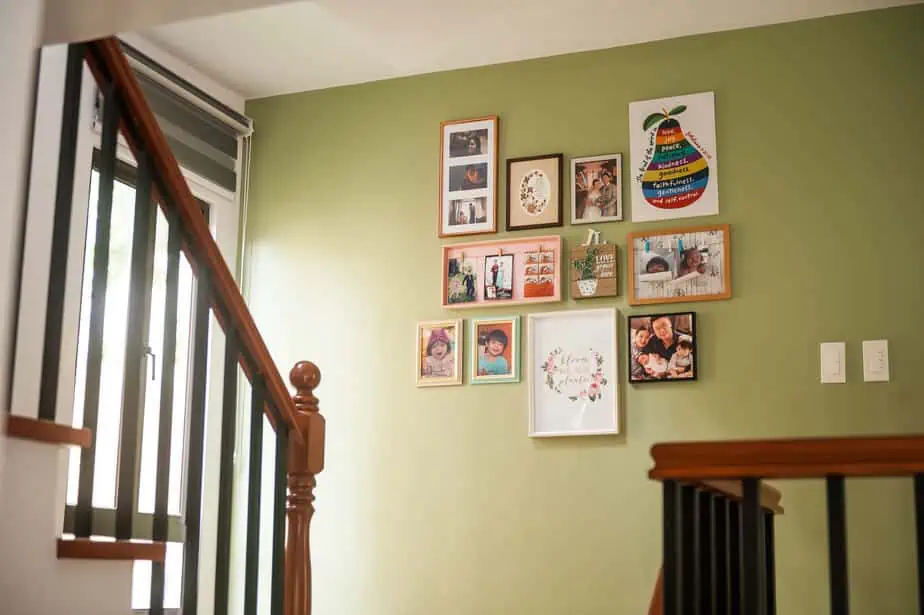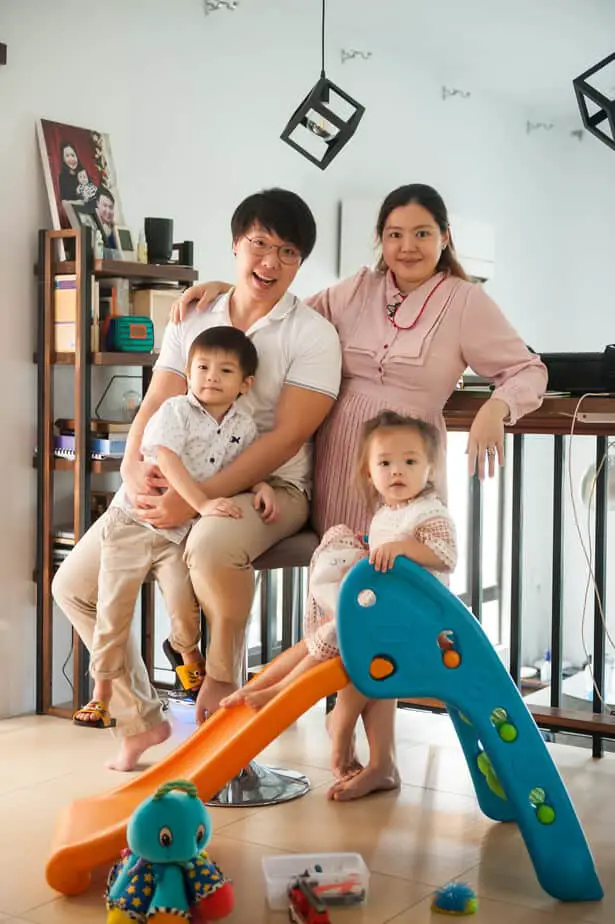You have finally moved out of your parents’ house. Great! Now what? Chances are, you might now have some regret for leaving home. You know it’s going to be challenging, but you didn’t envision it to be THIS hard. I can relate. No matter how we prepare ourselves, moving out on our own will be one of the most painful phases we will experience in our lives.
I have now lived away from my parents for three years. I also went through a tough process of adjustments after I left. In this post, I will share with you some practical ways I did to effectively cope with moving out of home. I hope you will find these tips helpful.
Disclaimer: this post is based on my own experiences and opinions. It is not intended to give professional advice.

In general, there can be at least four mental and emotional distress you’re battling now. We’ll name some of them in this post and tackle them one by one.
Homesickness
According to WebMD, Homesickness is the feeling of emotional distress when you’re away from home and in a new and unfamiliar environment. It affects those who’ve moved both temporarily and permanently, such as students, migrants, refugees, and those in the military. It’s estimated that 50% to 75% of the general population have felt homesick at least once in their life.
If you live in the same home with the same people your entire life, I’m sure you’re feeling pretty homesick right now. Here are some adjustments that worked for me:
Set a schedule for regular meet-ups with your parents.
The first time I moved out, my parents and I agreed to meet each other weekly. Either I’ll go visit them, or they’ll come over to my house. There are times when I even spend my weekends back at home with them. Being able to look forward to meeting with them each week helped me cope up with my homesickness.
Stay connected to your family but not too often.
Social media made my homesickness worse. Getting constant updates about my parents and siblings triggers my emotional distress. As much as it pains me, I only limit my communication with them during weekends. This helped me become more present with where I am today.
Season your new home with family pictures or favorite furniture from your old house.
We’re fond of fishes when we were kids. My dad had dozens of four-foot aquariums with various kinds of tropical marine creatures. One unforgettable tip I got from him, is that fish can die due to unfamiliarity. That’s why every time we buy new sets of fish, we let their bags float on top of the aquarium for a few minutes before we release them – including the water inside the bag. This will give the fish the opportunity to adjust to the water and get familiar to their new environment.
I’m not sure if this is a myth or not. But I observed in many cases when a fish die suddenly after we change its water and environment. That’s why when we clean the aquariums, we make sure we only replace half of the water.
I felt the same way when I first moved out of my parents’ house. My homesickness was so bad I couldn’t run my day-to-day life normally. All I can think about is going back home. But one advice from a mentor saved me from this terrible feeling. He said to bring something from the old house to my new home; like pouring the water in the bag to the aquarium. So I brought a couch, a blanket, and a set of dining wares. True enough, those items brought some old vibe to my new home.
Take time to appreciate your new neighborhood.
Speaking of familiarity, it is also therapeutic to set aside some time to explore your new neighborhood. Know the people, the food, or even the shortcuts. When my wife and I moved to the suburbs last year, we drove around town each week hopping from one coffee shop to another. We called it our coffee expedition. This helped us appreciate the place we’ll call home until God told us to move again.

Sadness
VeryWellMind described sadness as an emotional state characterized by feelings of unhappiness and low mood. It is a normal response to situations that are upsetting, painful, or disappointing. Sometimes these feelings can feel more intense, while in other cases they might be fairly mild.
Don’t beat yourself up for being sad after moving out. It only means you’re human. But also don’t be sad for too long. Prolonged sadness may lead to depression. Below are some practical tips to cheer yourself up:
Cry.
Just between you and me. I cried like a baby for about a week after I moved out of my parents’ house. Men, I know many of us want to keep our macho image. But seriously, try to cry it all out. You will feel a lot better after. Crying has many soothing benefits such as:
- Enhances mood.
- Aids sleep.
- Releases toxins and relieves stress.
- Fights bacteria.
- Improves vision.
Do something fun.
Now that you are “free,” try something you haven’t tried before. Do something you always wanted to do, but can’t because of your parents. Of course, as a reminder, please don’t do anything crazy that will make you regret later. Enjoying the perks of your independence and freedom will make you feel better about leaving your family. Examples are:
- Going home beyond 12am.
- Traveling with friends.
- Owning a pet.
- Setting up a gaming room.
- Inviting friends to sleep over.
Let go of stuff that makes you sad.
While bringing stuff from your old house can help you with homesickness, there are things that can also make you even sadder. To me, it’s the picture of my dog. The apartment I moved in to doesn’t allow pets, so I don’t have a choice but to leave my buddy with my parents. Take time to note these things in your house and keep them until you have finally moved on. This will help you cope up better with sadness.
This is temporary.
Another effective way to deal with sadness (at least for me) after you move is to recognize that this is only temporary. The reality is you actually have the power to go back home if you really want to. Furthermore, sadness is also a temporary emotion that will eventually go away with time. One mantra that helps me ease my sadness, especially when I did not get what I wanted is, “No for now, but not forever.”

Loneliness
The feeling of being alone, regardless of the amount of social contact. This is how the Centers for Disease Control and Prevention (CDC) defined loneliness.
I am an introvert. Being alone does not bother me. I actually feel recharged when I don’t have to connect socially. But with that said, loneliness was still able to creep in when I moved out from home. How do you deal with loneliness after moving?
Build your community.
I took the time to at least know the names of the people around me. The janitors, security guards, admin staff, and my neighbors. From time to time I give them food and greet them whenever I see them in the hallway. Furthermore, I also started a small group in our church where we regularly meet online to share about our lives. These efforts helped me have that sense of community which aided my feeling of loneliness.
Create happy memories in your new home.
Sometimes loneliness isn’t about connecting with people per se. You can have lots of friends and still feel lonely. The key is creating moments that can eventually turn into beautiful memories. Since my wife and I now live away from our families, we started a new habit of inviting people into our house. Together we will prepare food and enjoy the fellowship over free-flowing coffee. We became fond of collecting memories we can look back to in the future.
Read a book.
A book is a magical thing that lets you travel to far-away places without ever leaving your chair. — Katrina Mayer
Have you heard of Anne Frank? She is a Jewish diarist who hid from the Nazis from 1942 to 1944. For two years she and her family lived in a forty-two square meter space they call the “Secret Annex.” Imagine having no contact to the outside world for 24 months; how lonely can that be? But you know what made them through? Books! Here’s what she said on page 37 of her diary, “Ordinary people don’t know how much books can mean to someone who’s cooped up.”
I can attest to this. Books also helped me with my loneliness after I left home. It indeed has transported me to places I have never been while sitting on my couch. Reading Anne Frank’s diary for example allowed me to be in the Secret Annex even though I had never been to the Netherlands. But on top of that, what I enjoyed about reading good quality books is it also feels like you are having a meaningful conversation with people you haven’t met.
If you want to buy the digital copy of Anne Frank’s diary, you can check it out here.
Know that you are never alone.

I don’t intend to sound spiritual. But for transparency’s sake, the above image was the real clincher to my battle with loneliness. It’s a historical account in 2 Kings 6 of the Bible where the servant thought they were already surrounded by their enemies. The prophet Elisha told him not to be afraid, and prayed to God to open this person’s eyes so that he may see the real picture. Turns out there was a legion of horses and chariots of fire surrounding their enemies. The servant thought they were alone, but the reality is God’s presence is with them all along.
This passage in the Scripture taught me not to rely too much on my feelings or what I can see. There is a God who is always with me.
“Have I not commanded you? Be strong and courageous. Do not be frightened, and do not be dismayed, for the LORD your God is with you wherever you go.” — Joshua 1:9 ESV
Fear
Psychology Today says fear is essential to our survivability. They said it is our vital response to protect ourselves from physical or emotional dangers. With that said, fear is also one of the most common emotions we’ll experience after moving away from our family. It helps us navigate our new environment cautiously. Furthermore, it also spurs us to plan our defenses and emergency procedures.
Get busy.
Among the quickest ways to counter fear is to devote yourself to work. The one thing I feared most when I moved out with my family is not being able to provide for them. I was spoiled in my parents’ house as they take care of everything we need. They paid for our food and utilities. I wasn’t sure if I would be able to handle these added costs as I was still in debt, and expecting baby number to arrive in a couple of months.
Thanks to God, because He gave me the work I needed to support my family. Despite the additional expenses, we didn’t feel lacking during those times. I am not sure what you are fearful about today. But facing it head-on with its needed work will definitely help.
Have a plan for emergency situations.
My cousin contracted Covid-19 and was transferred to an isolation facility. He says it’s one of the most terrifying experiences he has ever had in his life. His fear stems from the fact that he is dealing with a life-threatening condition alone. That if anything happened to him, no one would be able to come to his aid.
Being aware of his fear, he devised an emergency plan. He told his wife that he would call her three times a day at their agreed time. And if he didn’t call, it’s a signal that she should go to where he is. Thank God his wife never needed to find him in the isolation facility. Nonetheless, his plan gave him comfort throughout his quarantine period.
Put the most important person on speed dial.
Several years ago I had trouble with anxiety disorder. It usually strikes around 3 am a few times a week. There was a season when I was scared of sleeping because I dread the feeling of panicking in the middle of the night. In short, I was anxious about being anxious. But what normally comforts me during these intense ten to twenty-minutes period is a bowl of egg rice or talking to my wife, who’s still my girlfriend that time. With this, one thing I did that helped me tremendously was putting her number on speed-dial. Knowing that I could reach her anytime I am under attack helped me sleep in peace.
Put your confidence in God.
Again, I don’t want to sound Holy or something. I’m far from it. But putting God in the equation always results in something good. I thank God for healing me from my anxiety disorder. It’s been a long time since I experienced an attack. And this started when I put my confidence in His goodness, love, and sovereignty. Understanding that there is a good and loving God who is always in control allowed me to sit back, relax, and trust His plan for me.

Closing Thoughts
Besides the mental and emotional distress mentioned above, there are other more you may experience like guilt, regret, or even anger. As I remember, it took me about three months before I got the hang of living on my own. In your case, this may take longer or shorter depending on how deep your attachment is to your family and neighborhood. Whatever the case, adjusting to your new life requires time. There’s no need to pressure yourself. Let the process groom you to a better version of yourself.
More From The Learning Dad Blog
- How To Survive Moving Out On Your Own
- 8 Tips To Make Moving Away From Family Easier
- 5 Ways To Leave Your Parents After Marriage
- 8 Important Things You Should Know Before You Move Out
- What Does Moving Out Teach You?
